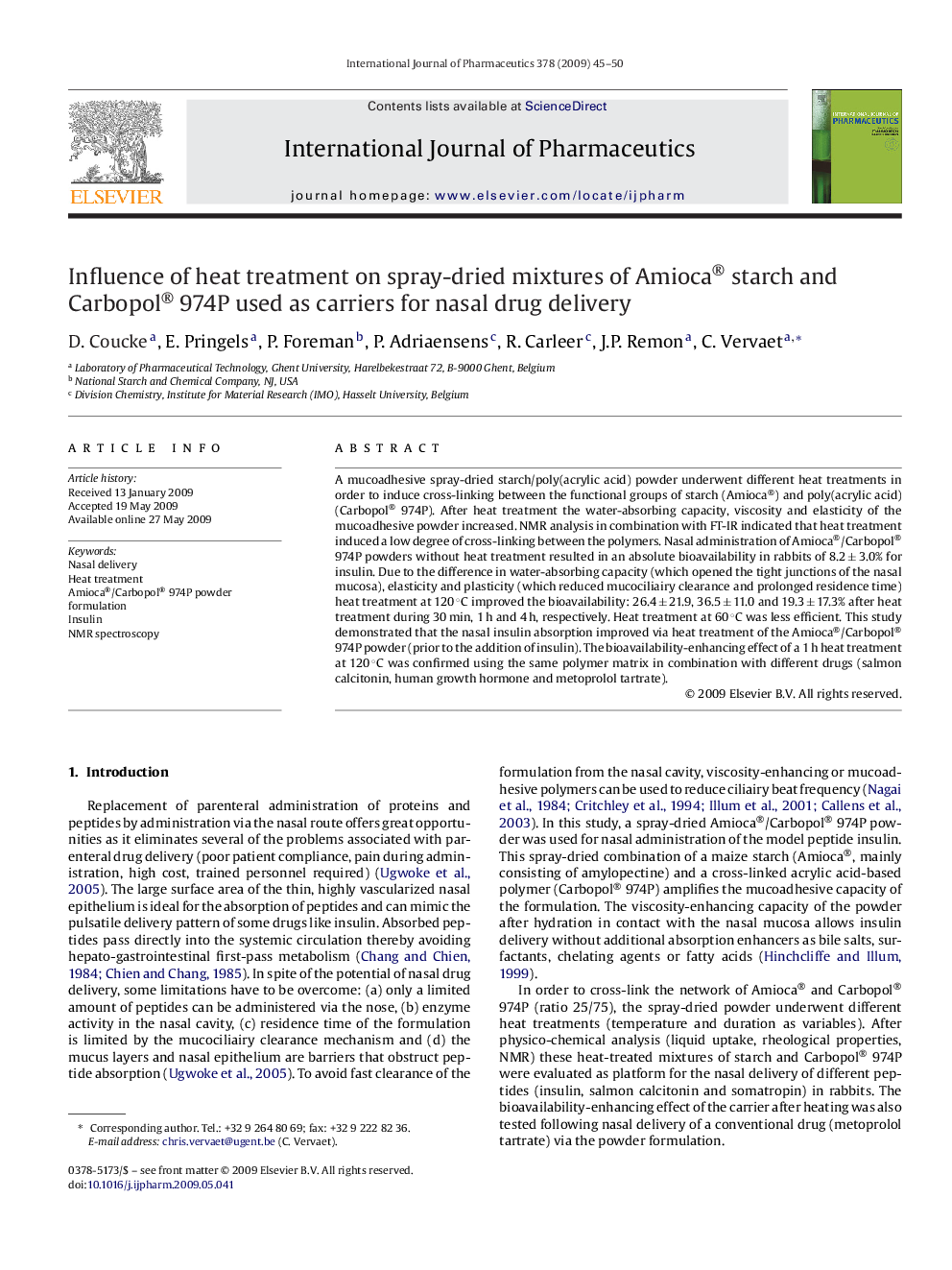| Article ID | Journal | Published Year | Pages | File Type |
|---|---|---|---|---|
| 2504678 | International Journal of Pharmaceutics | 2009 | 6 Pages |
A mucoadhesive spray-dried starch/poly(acrylic acid) powder underwent different heat treatments in order to induce cross-linking between the functional groups of starch (Amioca®) and poly(acrylic acid) (Carbopol® 974P). After heat treatment the water-absorbing capacity, viscosity and elasticity of the mucoadhesive powder increased. NMR analysis in combination with FT-IR indicated that heat treatment induced a low degree of cross-linking between the polymers. Nasal administration of Amioca®/Carbopol® 974P powders without heat treatment resulted in an absolute bioavailability in rabbits of 8.2 ± 3.0% for insulin. Due to the difference in water-absorbing capacity (which opened the tight junctions of the nasal mucosa), elasticity and plasticity (which reduced mucociliairy clearance and prolonged residence time) heat treatment at 120 °C improved the bioavailability: 26.4 ± 21.9, 36.5 ± 11.0 and 19.3 ± 17.3% after heat treatment during 30 min, 1 h and 4 h, respectively. Heat treatment at 60 °C was less efficient. This study demonstrated that the nasal insulin absorption improved via heat treatment of the Amioca®/Carbopol® 974P powder (prior to the addition of insulin). The bioavailability-enhancing effect of a 1 h heat treatment at 120 °C was confirmed using the same polymer matrix in combination with different drugs (salmon calcitonin, human growth hormone and metoprolol tartrate).
